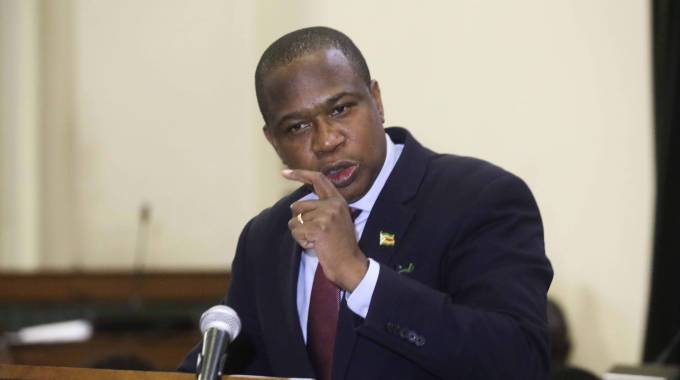Irrigation infrastructure development a priority
Business Reporter THE Government says it will invest more in water infrastructure development over the next five years to sustain irrigation schemes, especially at a time when seasonal rainfall is no longer reliable due to climate change. While rainfall is forecast to be favourable for the 2024/25 summer cropping season, the last season was negatively […]


Business Reporter
THE Government says it will invest more in water infrastructure development over the next five years to sustain irrigation schemes, especially at a time when seasonal rainfall is no longer reliable due to climate change.
While rainfall is forecast to be favourable for the 2024/25 summer cropping season, the last season was negatively affected by the El Niño-induced drought, which affected most countries in Sub-Saharan Africa, including Zimbabwe.
Finance, Economic Development and Investment Promotion Minister Professor Mthuli Ncube said the Government, in partnership with the private sector, had shown capacity to carry out huge infrastructure development projects.
“We have worked hard in terms of infrastructure in the last few years. Our focus is now on irrigation infrastructure such as dams, and in the next five years, we will be working on dams to boost agriculture, which will ensure food security,” said Minister Ncube.
The Government is also seeking partnerships to develop irrigation infrastructure. Zimbabwe has approximately 9 000 completed dams, with most of them regarded as idle due to lack of irrigation infrastructure.
“We have the capacity, and together with the private sector, we will be able to increase the area under irrigation, as irrigation development is capital intensive,” Prof Ncube added.
The National Development Strategy 1 (NDS1) and the Agricultural and Food Systems Transformation Strategy have set targets to increase the area under irrigation to 350 000ha by the end of next year from the current 203 000ha.
Zimbabwe Commercial Farmers Union president Dr Shadreck Makombe said the Government was conscious of the negative impact of climate change and need for irrigation.
“The Government is doing quite a lot in line with their strategic plans, but the challenge most of the time is matching the plans with action,” he said.
“They are conscious of climate change and need for irrigation because seasonal rainfall is no longer reliable these days.”
The private sector, mainly the banking sector, Dr Makombe added, should come in to support irrigation infrastructure development as agriculture is big business.
“Had irrigation infrastructure been in place, the country could have been in a better position in terms of grain supply, even during a drought year. Most dams usually do not dry up in a single drought season, hence this would have minimised the impact on food security.”
Dr Makombe said farmers were prepared for the upcoming season.
“The recent rains do not warrant the start of the agriculture season, so we have been saying to farmers they should wait for more rains that create enough moisture content for planting,” he said.
Earlier this year, Department of Irrigation Development director Engineer Bezzel Chitsungo said most of the country’s dams were not being fully used for irrigation.
Experts say current water bodies have the potential to irrigate up to two million hectares.
The Government is also exploring transboundary water resources, such as the Zambezi River in the north and Limpopo River in the south, and unlocking the potential of the Pfungwe water system and groundwater resources to expand the area under irrigation.
In a recent interview, Zimbabwe Farmers Union secretary-general Mr Paul Zakariya said the financing required in agriculture is in three different forms.
The first one was working capital, whose tenure ranged between 12 and 24 months, considered to be short-term; followed by medium-term financing, which can go up to five to 10 years, required for critical equipment such as to finance tractors, implements and irrigation; and long-term financing, which bankrolls infrastructure.
“You need dams on the farm, open up new fields, irrigation infrastructure, roads, packing and sorting facilities, and all that needs finance,” said Mr Zakariya.
“All that is funding that goes beyond 15 to 20 years. So, when we are talking about financing agriculture, we are not just talking about seed …
“Therefore, if what the Finance Minister is saying comes through in those three forms, farmers will become more solid.”
What's Your Reaction?


































